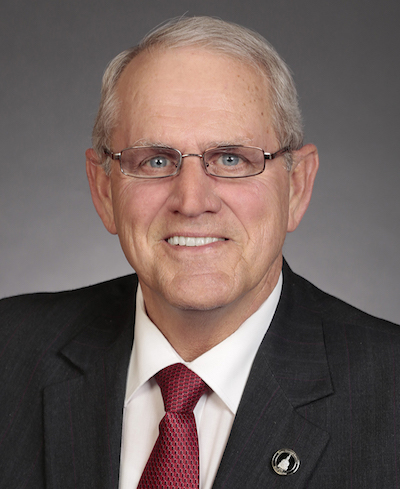The spread of the Occupy Wall Street protests shows the real anger in our country about inequality and corporate domination.
Here in Iowa, the symptoms are familiar. Parents patch together low-wage part-time jobs. Students go without crucial supplies. Our bridges and roads remain unrepaired.
These problems require solutions like fairer taxes, stronger protections for workers and a push to fix public works. But nothing will stick if we don’t reduce the influence of big money in politics, and increase the voices of average citizens.
Unfortunately, from Congress to county legislatures across the country, elected officials often make decisions and policies according to the desires of their largest donors, not the needs of their constituents.
It’s just plain common sense. If our leaders depend on hefty campaign contributions from big business, lobbyists and other moneyed interests to keep them in office, policy-making will reflect their concerns, not ours.
We know the influence of big money here in Iowa. At wining and dining events and campaign fundraisers, unlimited sums of campaign contributions change hands . They aren’t doling out cash because our elected officials are stunning dinner companions.
We’ve also seen how the legislature repeatedly champions killing rules intended to keep our air and water clean and workers safe. That hasn’t happened by accident either; it’s the result of a concerted campaign by big-donor corporations to put profits before the people of our state.
In Washington, we’ve seen what happens when Congress – hungry for Wall Street cash – abandoned Depression-era bank safeguards that protected Iowans and the rest of the country from out-of-control risk-taking with our money. We live with the consequences today.
So how do we lessen the influence of big money in politics? The best way to give regular voters a louder voice in elections and make government more responsive to average people is by changing the role of money in elections. That includes enacting contribution limits and introducing a system of public financing. Strong enforcement also is a must.
Unfortunately, big donors are gaining influence, not losing it. Last year’s Supreme Court’s Citizens United decision amplified the influence of big money by granting corporations first amendment rights. That means no limits on corporate campaign donations and an effective obliteration of the input of voters and small donors. Partly due to Citizens United, 2012 is expected to be the most expensive election year ever.
That trend is echoed here, where the November 8 special election for the 38th Senate District was one of the most expensive ever! What is in store next year is hard to imagine.
Fortunately, state level reform is possible. At home, Senator Pam Jochum, Rep. Chuck Isenhart and other elected champions regularly sponsor legislation to enact voter-owned elections, but powerful forces oppose it.
That’s why we’re looking to New York State. Governor Cuomo promised campaign finance reform when he ran for the job there in 2010. If he can pass a strong public financing bill – along with low contribution limits and strict enforcement rules – it would show the way forward for the rest of the nation.
New York State’s system (and an Iowa system, eventually) could be based on New York City’s, which boasts some real success and, unlike other local campaign finance systems, is largely immune to Supreme Court challenge.
So far the city’s system, which provides $6 to candidates for every $1 received by private citizens, has resulted in increased voter engagement, more competitive elections and opened doors for non-machine backed candidates. Every candidate is bound to public disclosure rules and contribution limits.
Iowans who care about good jobs, decent education and a fair economic system should call on our representatives to move in New York’s direction and implement voter-owned elections. A big win in New York – where it’s possible – would energize Iowa and the nation.
Continue Reading...

